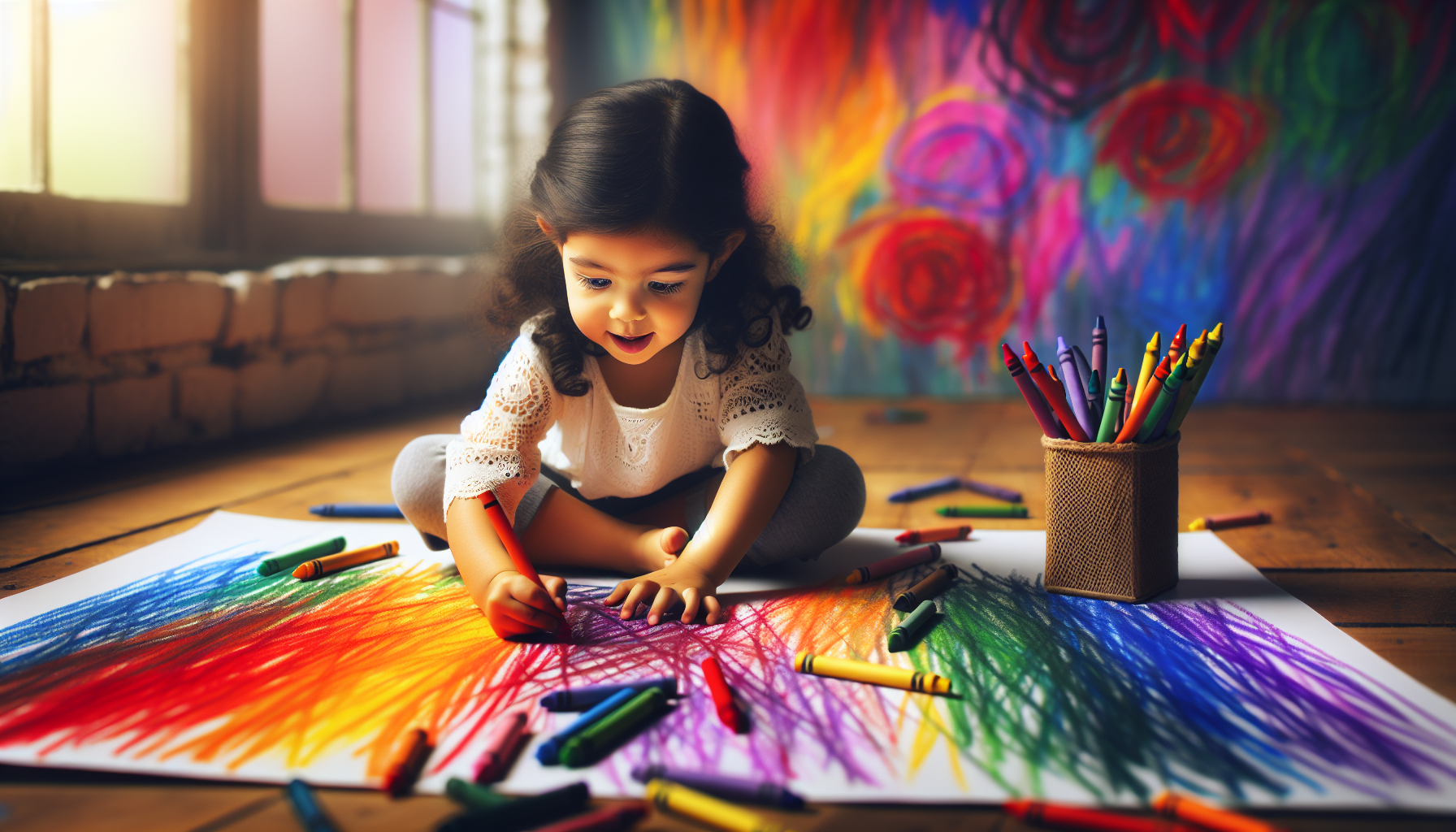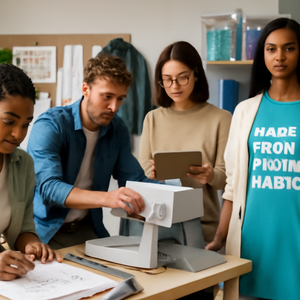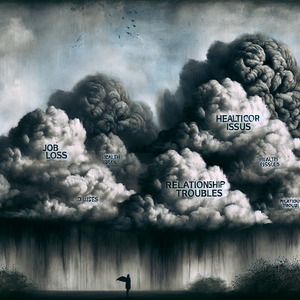From Trash to Treasure: The Rise of Upcycling Experts

Upcycling is more than just a buzzword; it embodies a shift in mindset towards waste. Traditionally, discarded items are viewed as mere trash, but upcycling encourages us to see potential and value in these materials. This movement has gained momentum due to increased awareness of environmental issues and the urgent need for sustainable practices. As individuals and companies alike strive to reduce their carbon footprint, upcycling experts have emerged as pivotal figures in this transformation, challenging the very notion of waste.
Profiles of Upcycling Experts
One notable figure in the upcycling realm is Sarah Johnson, an artisan furniture maker who transforms old pallets and discarded wood into stunning, custom furniture. Sarah’s journey began when she stumbled upon a pile of abandoned pallets and decided to experiment. Today, she runs a successful business, combining her passion for design with her commitment to sustainability. Her creations are more than just furniture; they tell a story of rebirth and creativity. “Every piece I create has a story,” Sarah shares. “It’s about giving new life to materials that would otherwise end up in a landfill.” Sarah’s work exemplifies how skilled craftsmanship and environmental consciousness can intersect to create beautiful, functional art.
The Fashion Innovator: Mark Chen
Another inspiring individual is Mark Chen, a fashion designer who specializes in upcycled clothing. By sourcing fabric remnants and vintage garments, Mark crafts unique fashion pieces that challenge the fast fashion industry. His collections not only highlight the beauty of reuse but also encourage consumers to rethink their purchasing habits. “Fashion should be about creativity, not consumption,” Mark asserts. His work has sparked a dialogue about sustainability within the fashion world, leading to collaborations with major brands seeking to reduce waste. Mark’s innovative approach shows that upcycling can disrupt traditional industries and foster a more sustainable marketplace.
The Community Organizer: Laura Gomez
Upcycling is not limited to individual artisans; community initiatives also play a crucial role. Laura Gomez, a community organizer, leads workshops that teach people how to upcycle everyday items. From turning glass jars into planters to creating art from scrap materials, Laura’s classes empower participants to embrace creativity while promoting sustainability. “It’s about building a community of makers who understand the value of what they have,” she explains. Her efforts have fostered a culture of innovation and collaboration in her neighborhood, proving that upcycling can unite communities and inspire collective action towards sustainability.
The Skills and Tools of the Trade
Becoming an upcycling expert requires a blend of creativity, resourcefulness, and technical skills. Those in this field often possess a strong background in design, craftsmanship, and an understanding of materials. Many upcyclers also harness social media and digital platforms to share their work, connect with like-minded individuals, and market their products. Additionally, sustainability-minded individuals can benefit from learning about materials science, as understanding the properties and potential of different materials can enhance their upcycling projects. Workshops, online courses, and community classes offer valuable resources for those looking to enter this evolving field. The combination of traditional skills with modern technology creates a unique opportunity for upcyclers to thrive in a sustainable marketplace.
The Impact of Upcycling on Sustainability
The rise of upcycling experts goes beyond individual success stories; it reflects a broader movement towards sustainability. By diverting waste from landfills and promoting the reuse of materials, upcycling significantly reduces environmental impact. According to a report by the Environmental Protection Agency (EPA), upcycling and recycling can prevent millions of tons of waste from entering landfills each year, which in turn reduces greenhouse gas emissions. Moreover, upcycling fosters a circular economy, where products are designed with longevity in mind, and waste is minimized. This approach not only conserves resources but also creates jobs and supports local businesses. As more consumers seek sustainable products, the demand for upcycled goods continues to grow, leading to new market opportunities for upcycling experts. The economic implications of this movement are profound, offering a viable career path in an increasingly eco-conscious world.
The upcycling movement is a powerful testament to human creativity and ingenuity. As we face pressing environmental challenges, the work of upcycling experts serves as a reminder that innovation can emerge from the most unlikely sources. By embracing the potential of what we once deemed waste, these individuals inspire us to rethink our relationship with materials and to see the beauty in repurposing. As the world continues to evolve, the rise of upcycling experts will undoubtedly play a crucial role in shaping a more sustainable future, turning trash into treasure, one creation at a time. This revolution not only highlights the importance of sustainable practices but also emphasizes the need for a cultural shift towards valuing creativity and resourcefulness in our consumption habits. The upcycling movement is here to stay, and its impact will resonate for generations to come.
Upcycling Furniture Designer
Artisan furniture studios, eco-conscious home goods retailers, design firms focused on sustainability
Core Responsibilities
Transform discarded materials into functional and aesthetic furniture pieces, often customizing designs to client specifications.
Conduct market research to identify trends in sustainable furniture design and adapt creations accordingly.
Manage sourcing and logistics for materials, ensuring all components align with sustainable practices.
Required Skills
Proficiency in woodworking and furniture design, with a strong portfolio showcasing upcycled projects.
Knowledge of sustainable materials and eco-friendly design principles.
Strong communication skills for client interactions and marketing efforts.
Sustainable Fashion Designer
Sustainable fashion brands, eco-friendly boutiques, fashion startups focused on reducing waste
Core Responsibilities
Create clothing and accessories from upcycled fabrics and vintage garments, promoting a sustainable fashion ethos.
Collaborate with brands to develop eco-friendly collections and educate consumers about sustainable practices.
Utilize digital platforms for marketing and community engagement, showcasing the uniqueness of upcycled fashion.
Required Skills
Strong background in fashion design, pattern making, and textile manipulation.
Familiarity with the fashion supply chain and sustainable production methods.
Innovative thinking to challenge traditional fashion norms and enhance creative storytelling through design.
Community Workshop Facilitator
Non-profit organizations, community centers, local art studios
Core Responsibilities
Organize and lead workshops that teach community members about upcycling various materials into art and functional items.
Develop educational materials and resources that promote sustainability and creativity within the community.
Foster relationships with local organizations to expand outreach and impact of upcycling initiatives.
Required Skills
Strong organizational and teaching skills, with the ability to engage diverse audiences.
Experience in crafting and upcycling, alongside a passion for community development.
Excellent interpersonal skills to build a supportive and collaborative environment.
Materials Scientist for Sustainable Design
Research institutions, sustainability-focused product manufacturers, consulting firms
Core Responsibilities
Research and develop new materials that can be upcycled or repurposed, focusing on durability and environmental impact.
Collaborate with designers and manufacturers to implement sustainable materials in product development.
Conduct testing and analysis to ensure materials meet safety and performance standards.
Required Skills
Advanced degree in materials science or a related field, with a focus on sustainability.
Strong analytical skills and experience with laboratory testing methods.
Ability to communicate complex scientific concepts to non-technical audiences.
Eco-Friendly Product Marketer
Sustainable product companies, marketing agencies specializing in eco-friendly brands, non-profit organizations promoting environmental awareness
Core Responsibilities
Develop and execute marketing strategies for upcycled products, emphasizing their sustainability and unique story.
Create engaging content for social media and online platforms to promote awareness of eco-friendly practices.
Analyze market trends and consumer behavior to refine product positioning and messaging.
Required Skills
Background in marketing, with a focus on digital marketing and brand storytelling.
Understanding of sustainability issues and the upcycling movement to effectively communicate product benefits.
Creative skills to develop visually appealing campaigns that resonate with eco-conscious consumers.


